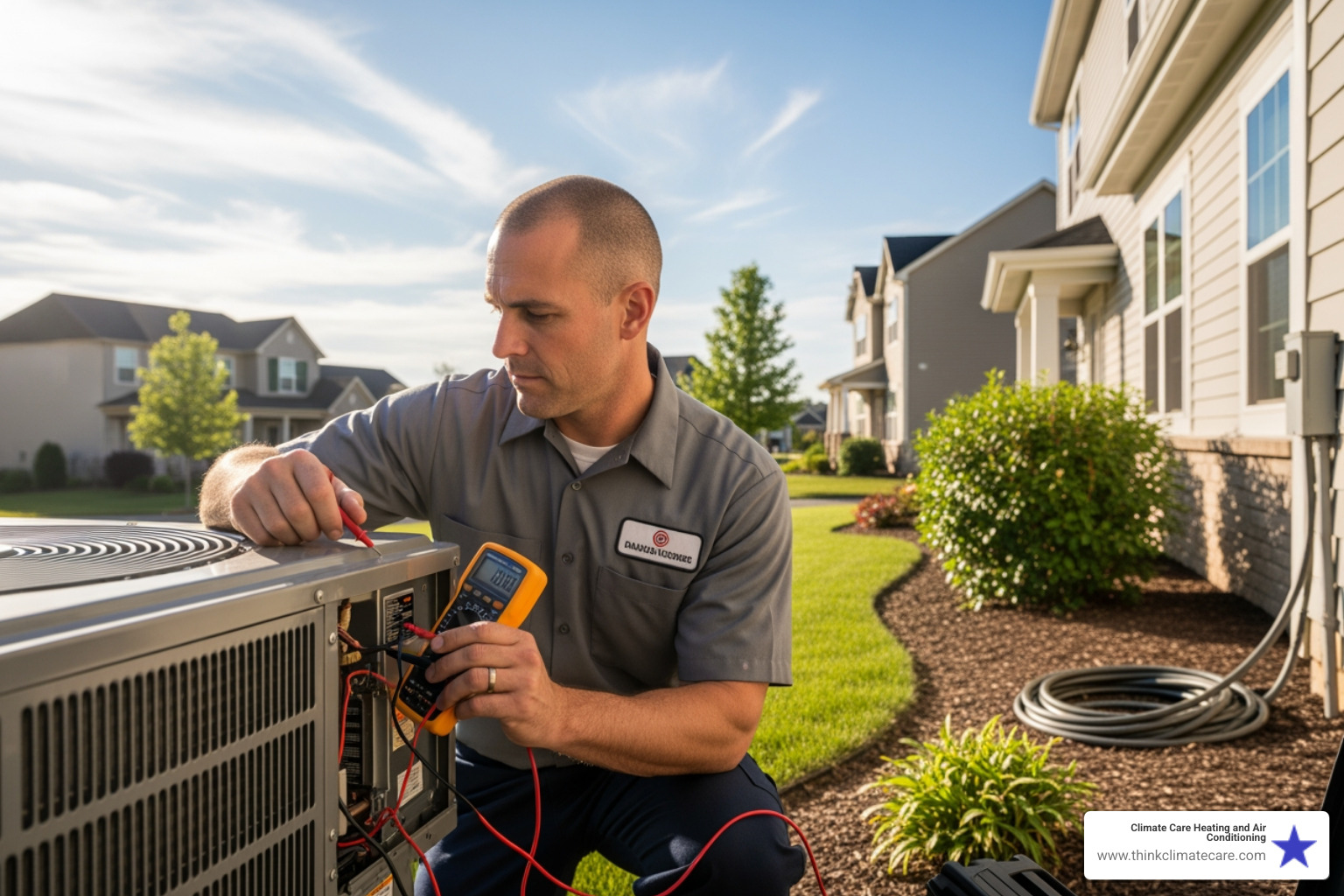Eco-Friendly HVAC Solutions for a Sustainable Home

In a world where environmental consciousness is becoming increasingly crucial, adopting sustainable living practices is not just a trend, but a responsibility. One significant contributor to household energy consumption is the HVAC system. In this blog post, we'll explore eco-friendly HVAC solutions that not only make your home more sustainable but also contribute to a greener future.
Understanding the Environmental Impact of Traditional HVAC Systems
Traditional HVAC systems are notorious for their significant energy consumption and greenhouse gas emissions. They heavily rely on non-renewable resources, contributing to environmental degradation. The need for eco-friendly alternatives has never been more important.
Eco-Friendly Heating Solutions
- Solar heating systems: Harnessing the power of the sun for home heating is both sustainable and cost-effective. Solar panels can be seamlessly integrated into your home's heating system, converting sunlight into warmth. While initial costs are something to consider, the long-term benefits and reduced carbon footprint make solar heating an excellent investment.
- Geothermal heat pumps: Geothermal technology utilizes the Earth's natural heat to provide efficient heating and cooling. By tapping into stable ground temperatures, these systems are both eco-friendly and energy-efficient. While installation costs can be higher, the long-term savings and minimal environmental impact make geothermal heat pumps a great option.
- Biomass heating systems: Biomass systems use organic materials such as wood pellets or agricultural waste for heating. This renewable energy source is carbon-neutral, as the carbon released during combustion is part of the natural carbon cycle. Properly managed biomass heating systems can be a sustainable alternative, contributing to reduced reliance on fossil fuels.
Sustainable Cooling Solutions
- Energy-efficient air conditioning units: Choosing high-efficiency air conditioning units, marked by the Energy Star label, can significantly reduce energy consumption. These units are designed to cool your home while minimizing environmental impact, making them a smart choice for those looking to stay cool without compromising sustainability.
- Passive cooling techniques: Embracing natural ventilation and optimizing airflow within your home can help reduce the need for artificial cooling. Additionally, strategic landscaping to provide shade can contribute to a cooler indoor environment. These passive cooling techniques not only save energy but also connect your living space to nature.
- Evaporative cooling systems: Evaporative coolers, also known as swamp coolers, use water to cool the air through evaporation. These systems are highly energy-efficient and are especially effective in dry climates. By choosing evaporative cooling, you not only lower your energy bills but also decrease your carbon footprint.
Smart HVAC Systems for Optimal Efficiency
Integrating smart thermostats into your HVAC system allows for precise control and automation. These devices learn your preferences, adjust settings accordingly, and can be remotely monitored and controlled via mobile apps. By optimizing your home's temperature based on usage patterns, smart HVAC systems enhance efficiency and reduce unnecessary energy consumption.
When considering eco-friendly HVAC solutions, it's essential to weigh the initial costs against long-term savings. Many governments offer incentives and rebates for adopting sustainable technologies, making the transition more affordable. Professional installation ensures the optimal performance of your system, and regular maintenance keeps it running efficiently over the years.
Transitioning to eco-friendly HVAC solutions is a positive step toward a more sustainable and environmentally conscious lifestyle. Whether harnessing the power of the sun, tapping into the Earth's natural heat, or embracing energy-efficient technologies, there are numerous options to choose from. As individuals, our choices matter, and by adopting greener HVAC solutions, we contribute to a healthier planet for future generations.
Customer Testimonials
Our customers love our service and support.













